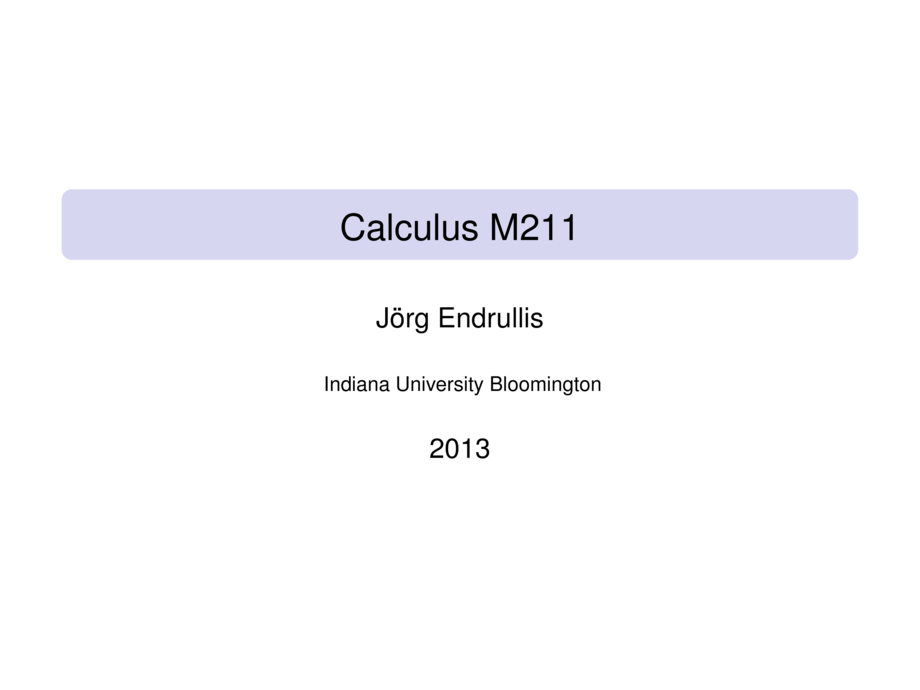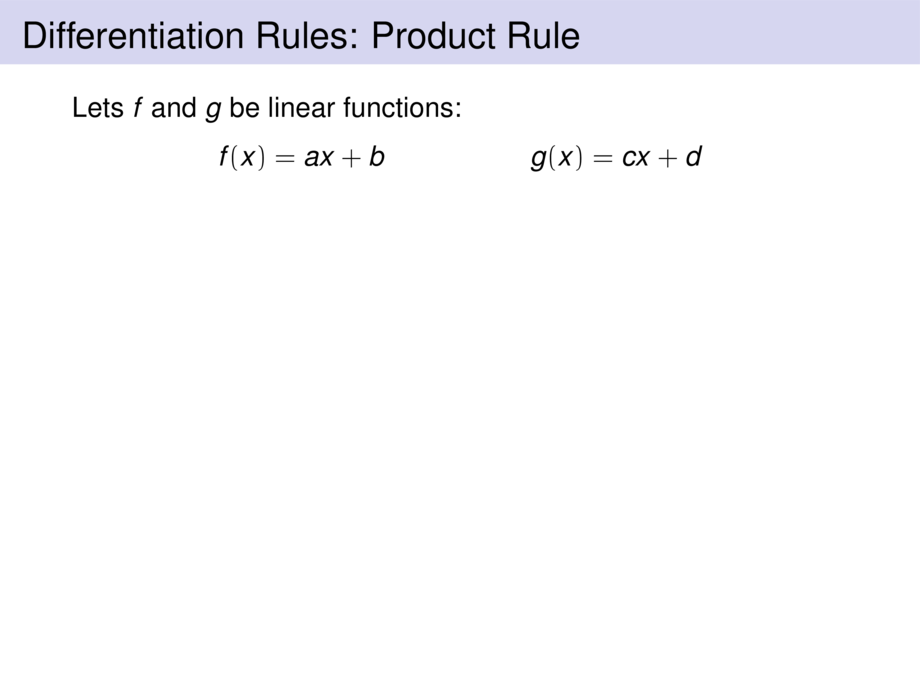



































































































2/155
\begin{frame}
\frametitle{Differentiation Rules: Product Rule}
Lets $f$ and $g$ be linear functions:
\begin{talign}
f(x) = ax + b && g(x) = cx + d
\end{talign}
\pause
\begin{exampleblock}{}
What is the derivative of $f\cdot g$?
\end{exampleblock}\vspace{-3ex}
\pause
\begin{talign}
\alert<8->{(f\cdot g)'(x)} &= \frac{d}{dx} [f(x)\cdot g(x)]\\
&\mpause[1]{= \frac{d}{dx} [(ax+b)\cdot (cx+d)] }\\
&\mpause[2]{= \frac{d}{dx} [acx^2 + adx + bcx + bd] }\\
&\mpause[3]{= 2acx + ad + bc} \\
&\mpause[4]{= a(cx + d) + c(ax + b)} \\
&\mpause[5]{= \alert{f'(x) \cdot g(x) + g'(x) \cdot f(x)}}
\end{talign}
\pause\pause\pause\pause\pause\pause
We will now see that this also holds for general $f$ and $g$.
\end{frame}

